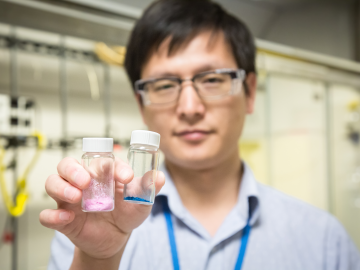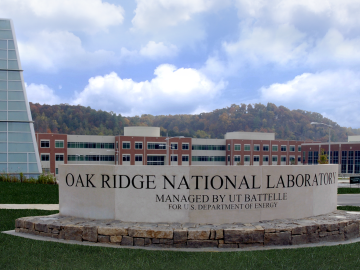Filter News
Area of Research
- (-) Chemical and Engineering Materials (2)
- (-) Quantum information Science (3)
- Advanced Manufacturing (10)
- Biological Systems (3)
- Biology and Environment (37)
- Biology and Soft Matter (1)
- Building Technologies (3)
- Chemistry and Physics at Interfaces (6)
- Clean Energy (110)
- Computational Biology (1)
- Computational Chemistry (1)
- Computational Engineering (2)
- Computer Science (4)
- Electricity and Smart Grid (1)
- Energy Frontier Research Centers (7)
- Functional Materials for Energy (6)
- Fusion and Fission (14)
- Fusion Energy (2)
- Geographic Information Science and Technology (2)
- Isotope Development and Production (1)
- Isotopes (12)
- Materials (54)
- Materials for Computing (18)
- Materials Synthesis from Atoms to Systems (5)
- Materials Under Extremes (6)
- Mathematics (1)
- National Security (7)
- Neutron Data Analysis and Visualization (2)
- Neutron Science (26)
- Nuclear Science and Technology (7)
- Quantum Condensed Matter (2)
- Reactor Technology (1)
- Sensors and Controls (1)
- Supercomputing (41)
- Transportation Systems (3)
News Type
News Topics
Media Contacts
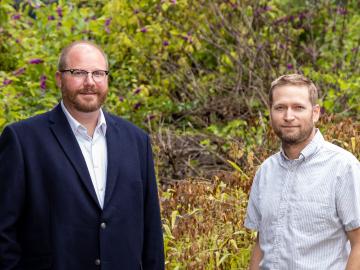
Of the $61 million recently announced by the U.S. Department of Energy for quantum information science studies, $17.5 million will fund research at DOE’s Oak Ridge National Laboratory. These projects will help build the foundation for the quantum internet, advance quantum entanglement capabilities — which involve sharing information through paired particles of light called photons — and develop next-generation quantum sensors.
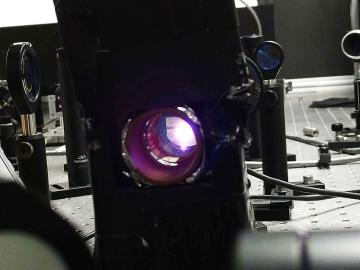
To minimize potential damage from underground oil and gas leaks, Oak Ridge National Laboratory is co-developing a quantum sensing system to detect pipeline leaks more quickly.
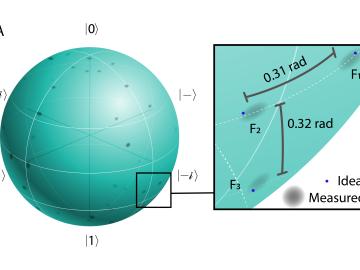
A team of researchers at Oak Ridge National Laboratory and Purdue University has taken an important step toward this goal by harnessing the frequency, or color, of light. Such capabilities could contribute to more practical and large-scale quantum networks exponentially more powerful and secure than the classical networks we have today.
